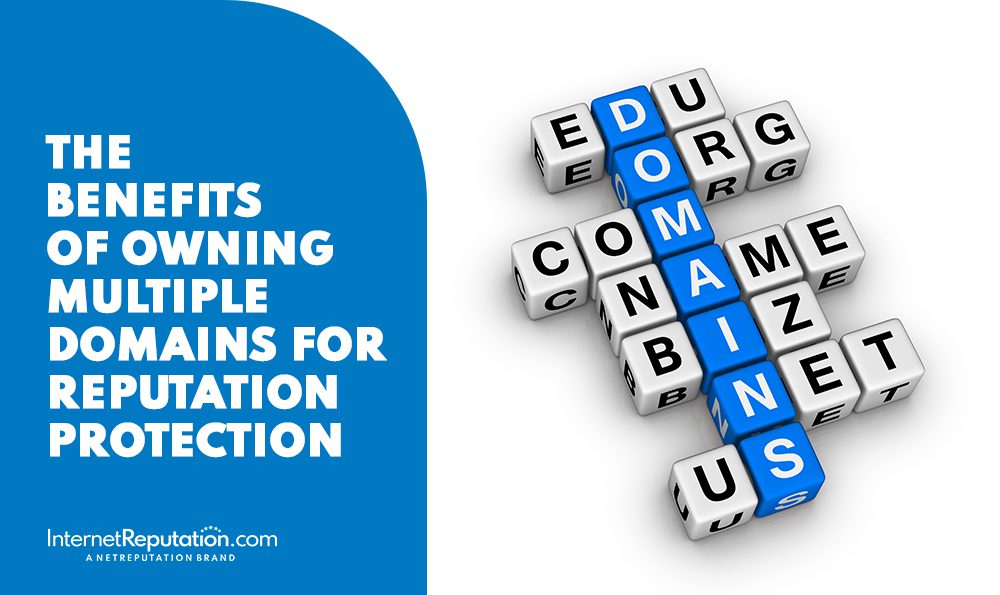Integrating Chatbots for Enhanced Reputation Management

Chatbots, AI-driven virtual assistants, have become essential in various industries, including reputation management. They streamline monitoring online conversations, responding to customer reviews, and collecting feedback. A study in the Journal of Technology Management and Innovation highlights their role in improving online reputation through timely, personalized customer interactions. Effective use requires understanding their monitoring capabilities on social media and review sites and their ability to gather customer insights. However, challenges like context understanding, technical issues, and customer perception must be addressed. Businesses should focus on personalizing chatbot responses, ensuring accuracy, and transparently communicating the use of chatbots to mitigate negative perceptions. When used wisely, chatbots can significantly enhance a business’s online presence and reputation management strategy.
What Are Chatbots?
Chatbots, or computer programs, are created to mimic human conversation using artificial intelligence. They are specifically designed to understand and respond to user inquiries, providing immediate assistance and support. Chatbots can seamlessly integrate into various platforms, such as websites and messaging apps, to automate customer interactions and improve reputation management. They offer 24/7 availability, personalized responses, and efficient problem-solving.
Chatbots are gaining popularity in customer service, e-commerce, and healthcare industries. A survey shows that 64% of internet users consider 24-hour service one of the most advantageous features of chatbots.
Why Are Chatbots Useful for Reputation Management?
Chatbots are highly beneficial for reputation management as they can provide immediate responses, gather feedback, and efficiently handle customer inquiries. They can simultaneously manage many inquiries, ensuring timely and effective customer support. Additionally, chatbots can monitor online reviews and mentions, analyze sentiment, and promptly address any negative feedback. Automating routine tasks allows human resources to focus on more complex issues. Furthermore, chatbots can collect valuable feedback and data, providing useful insights to improve products and services. Their usefulness lies in enhancing customer satisfaction, maintaining a positive brand image, and cultivating a strong reputation.
According to a report by Gartner, 70% of customer interactions will involve emerging technologies such as chatbots by 2022, further highlighting their importance in leveraging AI and in reputation management.
What Are the Benefits of Using Chatbots for Reputation Management?
Using chatbots for reputation management offers several benefits. First, chatbots provide instant, 24/7 customer support, ensuring prompt responses to queries and issues. This helps improve customer satisfaction and loyalty. Second, chatbots can monitor online conversations, allowing businesses to stay updated on what customers say about their brand and address any negative feedback. Third, chatbots can gather valuable feedback and data, providing insights for improving products and services. Overall, chatbots streamline communication, enhance brand reputation, and increase efficiency in reputation management processes.
How Can Chatbots Be Integrated into Reputation Management Strategies?
As technology advances, businesses find innovative ways to manage their company’s online reputation. One such method is the integration of chatbots into reputation management strategies
Monitoring Online Conversations
Effective monitoring of online conversations is key to reputation management. To do this, social media listening tools should be employed for real-time tracking of brand mentions and customer feedback. Set up services like Google Alerts for notifications of online brand mentions. Review customer sentiments regularly on review sites, forums, and social media networks and respond promptly. Keep an eye on industry-specific websites and blogs for relevant discussions. Analyze the data collected to understand customer perceptions and trends. Engage actively with customers, address their feedback, and use insights to enhance products and services. Staying vigilant and responsive helps businesses manage their online reputation and establish trust with their audience.
Responding to Customer Reviews
Effectively responding to customer reviews is crucial for reputation management. Businesses should regularly monitor review platforms and social media for feedback. It’s important to understand the specifics of each review to address customer concerns accurately. Prompt responses show customers their feedback is valued. Personalizing responses to address the particular issues mentioned in the negative reviews, showing empathy towards customer experiences, and offering solutions to complaints are key. Responses should always be professional and courteous, regardless of the review’s tone. Encouraging customers to continue the conversation directly if needed demonstrates a commitment to customer satisfaction and proactive reputation management.
Gathering Feedback and Data
To effectively use chatbots for reputation management through feedback and data collection, consider the following steps: Design chatbot surveys to collect customer feedback and satisfaction ratings. Implement interactive forms within the chatbot to gather specific customer data and preferences. Analyze chatbot conversations to pinpoint common concerns or areas for improvement. Use chatbot analytics tools to monitor user interactions, sentiment, and engagement levels. Employ sentiment analysis in chatbots to detect trends and preemptively address potential reputation risks. These measures can help understand customer expectations and needs and improve reputation management strategies.
What Are the Best Practices for Using Chatbots in Reputation Management?
Chatbots have become an increasingly popular tool for businesses to manage their online reputations. However, not all chatbots are created equal, and certain best practices should be followed to utilize them effectively in reputation management.
Personalization and Authenticity
Personalization and authenticity are crucial when utilizing chatbots for reputation management. To achieve these qualities, follow these steps:
- Customize responses
- Use natural language
- Provide accurate information
- Offer personalized recommendations
- Show empathy
Prompt and Accurate Responses
To ensure chatbots provide prompt and accurate responses for online reputation management, implement intelligent algorithms to interpret user queries effectively. Integrate chatbots with a comprehensive knowledge base, ensuring access to relevant and up-to-date information. Regularly update the chatbot’s database to align with the latest data and information. Train chatbots to handle common queries accurately. Employ natural language processing to grasp the context and intent of user messages. Additionally, continuously monitor and analyze customer interactions with the chatbot to refine and improve its responses. These steps can significantly enhance the effectiveness of chatbots in managing online reputations.
Regular Maintenance and Updates
Regular maintenance and updates are crucial when integrating chatbots for reputation management to ensure optimal performance and effectiveness of AI algorithms. Here are the steps to follow:
- Monitoring performance
- Updating knowledge base
- Testing and debugging
- Improving language understanding
- Implementing user feedback
- Staying up-to-date with trends
What Are the Potential Challenges of Integrating Chatbots into Reputation Management?
As businesses continue to incorporate chatbots into their reputation management strategies, it’s important to acknowledge the potential challenges that may arise. Despite their efficiency and convenience, chatbots may face limitations in understanding context and tone, leading to poor customer service and misunderstandings. Additionally, technical errors and glitches can negatively impact the customer experience. Moreover, there is a risk of negative customer perception towards relying solely on chatbots for reputation management. Let’s explore these challenges in more detail and discuss possible solutions.
Limited Understanding of Context and Tone
To address the challenge of limited context and tone understanding in chatbots for reputation management, businesses should implement Natural Language Processing (NLP) algorithms, enabling chatbots to understand and interpret user messages. Training chatbots with diverse data improves their grasp of context and tone. Regularly updating chatbot algorithms helps them adapt to evolving language patterns and trends. Providing chatbots access to relevant customer data enhances their ability to recognize individual preferences and history. Additionally, allowing for a seamless handover to human representatives in complex or sensitive situations is crucial. These steps can significantly improve chatbots’ effectiveness in reputation management. Moreover, it’s important to maintain chatbots regularly to prevent technical errors and glitches, ensuring they remain reliable in managing a business’s reputation.
Technical Errors and Glitches
Technical errors and glitches can pose challenges when incorporating chatbots into reputation management strategies. To overcome these challenges and ensure smooth functioning, businesses should follow these steps:
- Thorough Testing
- Regular Updates
- Monitoring and Analytics
- User Feedback
- Engage Technical Support
By following these steps, businesses can minimize the impact of technical errors and glitches, ensure that chatbots effectively manage customer expectations, and contribute to reputation management efforts.
Negative Customer Perception
Negative customer perception can present challenges when incorporating chatbots into reputation management. Some customers may feel frustrated or alienated if they believe a machine learning move is not addressing their concerns. To overcome this, businesses can implement strategies such as:
- Transparency
- Human-like interactions
- Seamless transition
By addressing negative customer perceptions, businesses can optimize chatbots’ advantages in reputation management and foster stronger relationships with their customers.
How Can Businesses Overcome These Challenges and Maximize the Benefits of Chatbots for Reputation Management?
As chatbots become increasingly integrated into businesses for reputation management, it is important to understand the challenges that may arise and how to overcome them to maximize the benefits.
Managing Risk and Organizational Results
Successfully managing risk and maintaining positive results in reputation management involves taking proactive steps. First, develop a comprehensive risk management plan to identify potential threats and outline preventive measures. Establish clear, consistent communication channels to address concerns promptly and transparently. Monitor online conversations and social media platforms for negative sentiment or potential reputation risks. Lastly, implement a proactive strategy to effectively address and resolve customer complaints and issues. These steps can help mitigate risks and enhance the overall effectiveness of reputation management efforts.
Working Aggressively to Limit Damage
Businesses must work aggressively to address negative feedback or incidents to limit damage to their reputation. This involves taking swift and decisive action, such as acknowledging the issue, providing prompt and empathetic responses, and offering solutions or compensation if necessary. Taking full responsibility and demonstrating a strong commitment to resolving the problem is crucial.
Additionally, monitoring online conversations and proactively addressing potential issues can help prevent further damage. By actively using positive reviews, engaging with customers, and addressing their concerns, businesses can effectively mitigate the impact of negative feedback and maintain a positive reputation.
Providing Exceptional Customer Service
Delivering exceptional customer service is essential for businesses looking to improve their reputation through chatbots.
- Instant Response
- 24/7 Availability
- Personalization
Research shows that 64% of consumers believe improved customer service experience is more important than price in their brand choice.
Practical Applications and Tangible Benefits of Chatbots in Reputation Management
In today’s digital landscape, chatbots have become valuable tools for businesses to manage their positive online reputations.
Enhancing the Customer Journey
Improving the customer journey is vital to managing reputation management when incorporating chatbots. Here are the necessary steps to achieve this goal:
- Seamless Interaction
- 24/7 Availability
- Personalization
- Efficient Problem Resolution
- Proactive Assistance
With chatbots handling customer reviews and gathering data, businesses can focus on improving communication and efficiency in reputation management.
Improving Communication and Efficiency
Integrating chatbots into reputation management strategies can greatly improve communication and efficiency. To achieve this, follow these steps:
- Instant response
- 24/7 availability
- Consistent messaging
- Automated tasks
- Data collection
By implementing these steps, businesses can improve communication and efficiency through chatbots, enhancing reputation management and customer satisfaction.
With chatbots, you can kill two birds with one bot – boosting sales and improving your brand’s reputation.
Boosting Sales and Brand Reputation
Incorporating chatbots into reputation management strategies can greatly enhance sales and brand reputation. Chatbots can improve the customer journey by promptly and accurately responding to customer inquiries, addressing concerns, and efficiently resolving issues. Chatbots can enhance communication and foster positive customer experiences through personalized and authentic interactions, ultimately increasing customer satisfaction and loyalty.
Moreover, chatbots can also gather valuable feedback and data from potential customers, enabling businesses to analyze customer sentiments and make informed decisions to improve their products and services. Chatbots are useful tools for boosting brand reputation



